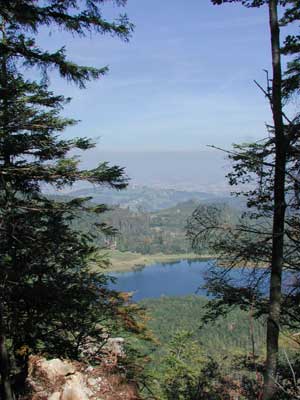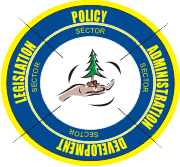It is widely acknowledged that improving forest governance is an important prerequisite for sustainable forest management and reducing deforestation and forest degradation. Making governance work better for people and forests is not an easy task. Divergent interests, imbalanced power relations and...
REDD+ resources
Reducing Emissions from Deforestation and Degradation plus Sustainable Forest Management
(REDD + SFM)
Sustainable Forest Management (SFM) is seen to be a key factor to REDD+►►
Definition of SFM by UN + FAO: A/RES/62/98►► Definition of SFM by UNFF: Sustainable forest management as a dynamic and evolving concept aims to maintain and enhance the economic, social and environmental value of all types of forests, for the benefit of present and future generations►► Definition of SFM by CIFOR: Managing (permanent) forest to achieve one or more clearly specified objectives of management with regard to the production of a continuous flow of desired forest products and services (e.g. carbon) without undue reduction of its inherent values and future productivity and without undue undesirable effects on the physical and social environment►► |
 |
SFM, according to internationally agreed language, is a dynamic and evolving concept that aims to maintain and enhance the economic, social and environmental value of all types of forests, for the benefit of future generations.
Want to read more about Sustainable Forest Management? Follow this link►
REDD+ Governance
 At national, regional and local level as well as for state owned and private owned land and forests
At national, regional and local level as well as for state owned and private owned land and forests
Myanmar remains one of the world’s only countries with no prohibitions on log exports. The country provides much coveted teak and other hardwood logs to the region and beyond. Sawn wood, and to a lesser extent finished wood products, contribute a relatively small amount to Myanmar’s total exports...
REDD+ Social & Environmental Standards launched its public consultation on draft ‘Guidelines for the use of REDD+ SES at country level Version 2′ from 5th April until 4th June 2012. Drawing on emerging experience from countries using REDD+ SES, the existing ‘Guidelines on the Interpretation and...
This paper compares the historic German discourse on forest functions with the current international debate on ecosystem services and analyzes the factors that may have triggered or inhibited the development and the institutionalization of both underlying concepts and subordinate debates....
Seiten
REDD+ Capacity building
 At all stages from indigenous people, local communities to individual forest owners
At all stages from indigenous people, local communities to individual forest owners
The Accra Caucus on Forests and Climate Change is a network of southern and northern NGOs representing around 100 civil society and Indigenous Peoples' organizations from 38 countries, formed at the United Nations Framework Convention on Climate Change (UNFCCC) meeting in Accra, Ghana in 2008.
Community Forestry International (CFI), in partnership with Terra Global Capital (TGC), recently published a case study describing experiences emerging from the design and carbon development of one of the world’s first community-based REDD+ projects in Oddar Meanchey Province, Cambodia.
A MAJOR global conference to form the first real genuine partnership to fight climate change through Reduction of Emissions from Deforestation and forest Degradation (REDD) in developing countries will be held in Oslo, Norway later this month. The conference which is expected to be attended by...
Official in Oddar Meanchey province on Monday began relocating a group of 200 families living in a protected forest area near Samraong town, ending a standoff that led to a violent altercation between villagers and Forestry Department workers in March, officials said.
Seiten
REDD+ Technical Support
 From national carbon inventory to national land use planning...
From national carbon inventory to national land use planning...
